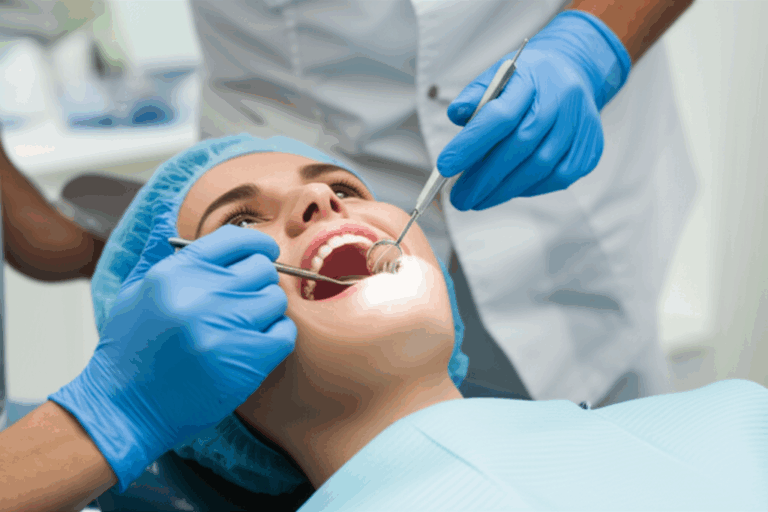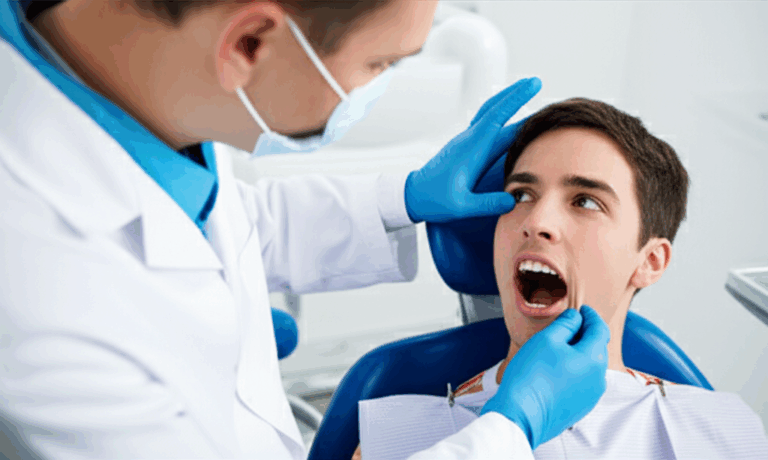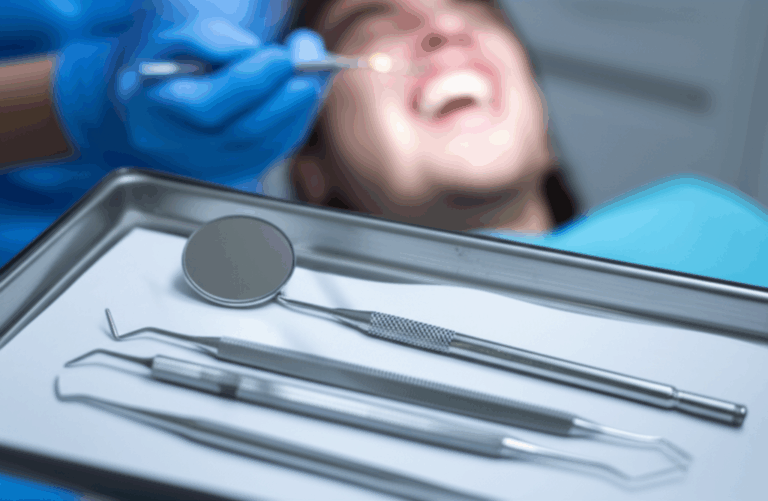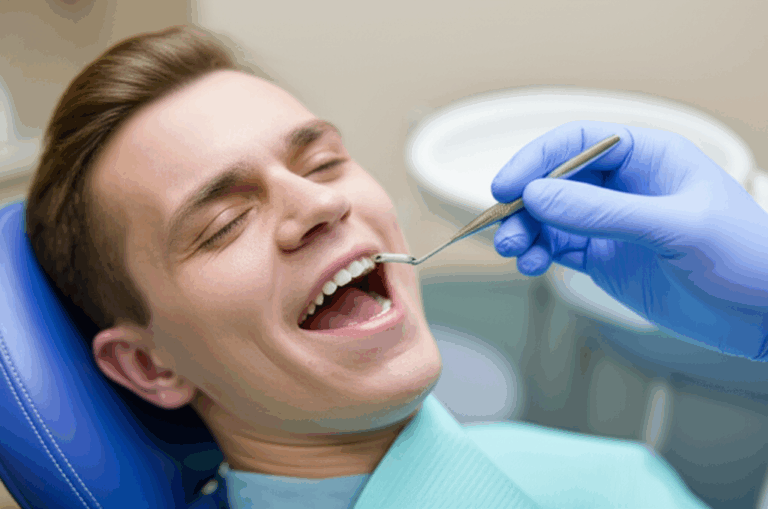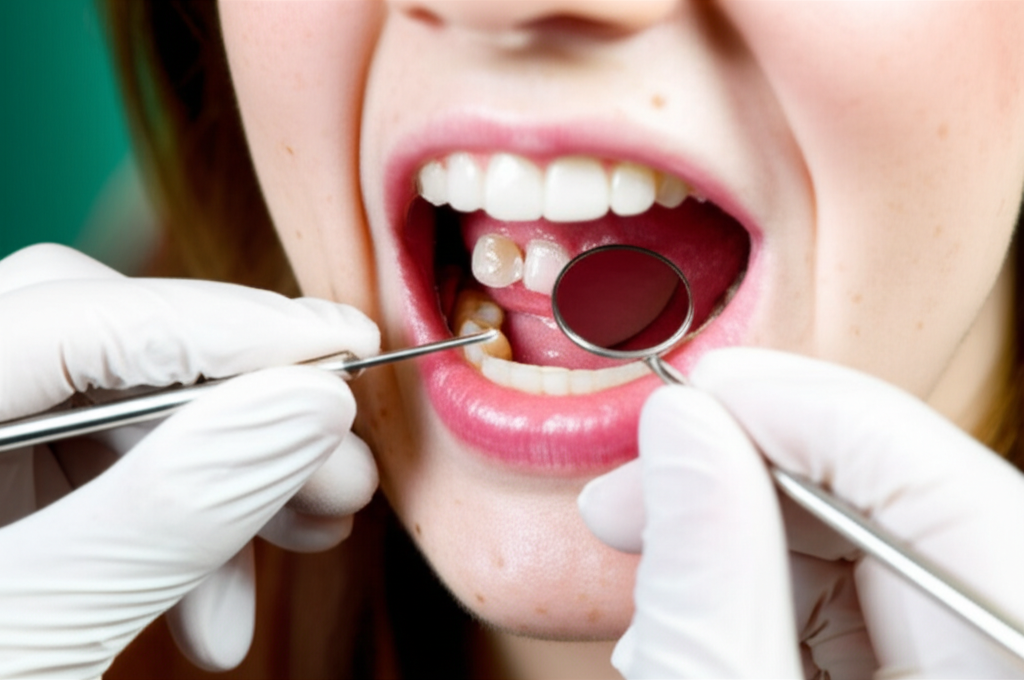
Can a Dentist Fix a Loose Crown? Your Complete Guide to Repair, Solutions, and Prevention
Worried about a loose dental crown? Wondering if the dentist can fix it, how it’s done, and what you should do right now? You’re in the right place. This guide explains how dentists handle loose crowns, what causes the problem, and how you can protect your smile. By the end, you’ll know what steps to take and feel more sure about your next move.
Table of Contents
1. Introduction: Why a Loose Crown Is a Big Deal
When your dental crown feels loose, it’s easy to hope the problem will just go away. I’ve felt that before—bit into a sandwich, noticed something moved, and wished it meant nothing. But loose crowns are like loose wheels on a bike: ignore them, and trouble isn’t far away.
The good news? Yes, a dentist can usually fix a loose crown. In fact, it’s one of the most common things dentists handle.
Fixing a loose dental crown quickly keeps your tooth safe, saves you money, and stops pain from getting worse. So, if this happens to you, don’t worry—keep reading to learn what you can do.
2. How Do You Know If Your Crown Is Loose?
Noticing a loose crown is usually easy.
Look for these signs:
- The crown wiggles or moves when you eat or touch it.
- Sudden pain or sensitivity when you bite down, have hot or cold drinks, or touch the crown.
- Food gets stuck around the crown more often.
- You see a gap between the crown and your gums.
- The crown feels higher, or your bite feels strange.
I once chewed a gummy bear and noticed my crown moved. Sure enough, it wobbled when I touched it with my tongue. If that’s happening to you, your crown isn’t as tight as it should be.
3. Why Do Dental Crowns Become Loose?
Crowns don’t get loose for no reason. There are a few main causes—most can be avoided if you take care.
Here are the common reasons:
- Old or Failing Dental Cement: The glue holding your crown can wear out over time. Chewing and water slowly break it down, making the crown loose.
- Cavities Under the Crown: If bacteria get under the crown and cause decay, the tooth gets weak, and the crown feels loose.
- Injury or Bumps: A hit during sports or an accident can break the seal or even knock the crown off.
- Teeth Grinding (Bruxism): Grinding your teeth adds extra force, loosening the crown bit by bit.
- Gum Problems or Receding Gums: If your gums pull away, more of the crown gets exposed, and it’s easier for germs and biting pressure to cause trouble.
- Bad Fit or Poor Lab Work: A crown that doesn’t fit right from the start will always have a problem.
To give you an idea, old dental cement causes about half of all loose crown cases. So age and wear really matter.
4. Is a Loose Crown an Emergency?
A lot of people ask: “Do I need to see a dentist RIGHT NOW?”
Here’s what to do:
- Call your dentist as soon as you notice a loose crown, even if it doesn’t hurt.
- If you have pain, swelling, an exposed tooth, or the crown fell out, it’s an emergency.
- If it’s a small wiggle, with no pain, you usually have a day or two—but don’t wait longer.
If you wait, bad things can happen:
- Food and germs get under the crown and cause decay quickly.
- The exposed tooth may break or get infected.
- You might swallow the crown if it pops off.
I ignored a small wiggle, thinking I could wait. A week later, the crown fell off, and my tooth hurt so much I needed a root canal. Don’t do what I did. The quicker you act, the better you’ll be.
5. What Will the Dentist Do to Fix My Loose Crown?
Once you get to the dental office, things usually get better fast. Dentists fix loose crowns every day, and there are a few ways they do it depending on the reason.
A. Re-cementing the Crown (Most Common Fix)
If your crown isn’t broken and your tooth is healthy, this fix is quick and cheaper.
- The dentist will gently take off the crown, clean everything.
- They’ll check for decay and remove any if needed.
- The crown is then glued back with dental cement.
How long does this last? If everything is healthy, this fix can last 2-5 years or more.
B. Replacing the Crown
If there’s decay, cracks, or a bad fit, you’ll probably need a new one.
- The dentist takes off the old crown and fixes the tooth.
- They take impressions of your tooth.
- You get a temporary crown while a new one is made.
- At your next visit, the new crown is put on and glued in place.
A new crown costs more but usually lasts longer.
C. Fixing Problems Below the Crown
If the tooth under the crown is badly hurt—maybe with an infection or big decay—the dentist may need to do extra work:
- They could do a root canal if the decay goes deep.
- If the tooth can’t be saved, it might need to come out, and you could get an implant or bridge.
Whatever your dentist suggests, the goal is to make your mouth healthy and pain-free.
Learn more about crown and bridge solutions.
6. Can You Fix a Loose Crown at Home?
It’s tempting to try glue or pressing the crown back on—but please don’t.
Do’s While You Wait for the Dentist:
- Call your dentist right away and explain what’s going on.
- If the crown comes off, save it in a clean container.
- Clean your mouth gently—rinse with warm salt water and use a soft toothbrush.
- Eat soft foods and don’t chew on the side with the problem.
- If your dentist tells you, you can use a very small amount of dental cement (from the pharmacy) to hold the crown on until your visit.
Don’ts:
- Never use household glue or super glue on a dental crown.
- Don’t try to force the crown on if it won’t go.
- Don’t forget about pain, swelling, or sharp edges poking your mouth.
- Don’t eat sticky or hard foods.
If you try to fix things yourself with the wrong stuff, you can hurt your tooth and make fixing it harder for the dentist.
7. How Much Does It Cost to Fix a Loose Crown?
Let’s be real: dental work costs money, so it helps to know what to expect.
Normal Cost Ranges (in the US):
| Treatment | Cost Range (No Insurance) |
|---|---|
| Re-cementing a Crown | $75 – $300 |
| New Permanent Crown | $800 – $2,500+ |
| Root Canal/Post & Core | $700 – $1,500+ (extra) |
What changes the cost?
- Where you live (big city vs. small town).
- Type of crown material (porcelain, zirconia, gold, ceramic).
- How much work your tooth needs.
- If you have dental insurance.
If you’re worried about the cost, ask your dentist for an estimate before they start. And remember, fixing a loose crown early often saves you bigger bills later.
8. How to Prevent Loose Crowns in the Future
It’s always easier to stop problems before they start—especially with dental crowns. Here are some easy tips:
- Brush your teeth two times a day and floss every day to keep teeth and crowns clean.
- See your dentist every six months. Regular check-ups catch problems fast.
- If you grind your teeth, get a night guard.
- Don’t chew ice, hard candy, or sticky foods.
- Tell your dentist if your bite feels strange or something feels off with your crowns.
- Eat less sugar to keep your teeth and gums strong.
Crowns made in a good dental ceramics lab tend to last longer, fit better, and not come loose—even after many years.
9. Crowns and Special Situations: Implants, Bridges & More
Loose crowns can happen with more than just single teeth. You might have a crown on a dental implant, or as part of a bridge.
- Implant Crowns: These might get loose where the screw is or at the crown. Sometimes the cement comes loose too.
- Bridge Crowns: If one side of a bridge is loose, the whole thing can move. See a dentist quickly so it doesn’t get worse.
- Temporary Crowns: A temporary crown can come loose, but it shouldn’t just fall out—call your dentist if it does.
Crowns made from different materials—like zirconia, porcelain, or gold—each have good and not-so-good points. Zirconia crowns are especially strong and last long.
10. What to Expect at Your Dental Visit
Nervous about your dental visit? Here’s what usually happens:
You might feel a little poking, but modern dental visits are quick and easy—soon your smile will feel right again.
11. Frequently Asked Questions (FAQs)
Q: My crown is loose but not painful. Can I leave it until my next checkup?
A: No. Go to your dentist soon. Loose crowns trap food and let germs in, which can cause more problems even if you feel fine now.
Q: Can I reattach the crown myself?
A: You can use a little temporary dental cement from the store if you can’t see your dentist soon. Never use glue or things from your home.
Q: Will I need a whole new crown if it’s loose?
A: Not always. Your dentist can often glue it back on if there’s no decay or cracks. But if the crown or tooth is hurt, you may need a new one.
Q: How long does a fixed crown last?
A: Crowns glued back on usually hold for 2-5 more years. New crowns can last 10-15 years or even more if you take care.
Q: How can I stop my crown from getting loose again?
A: Brush, floss, avoid sticky foods, get a night guard if you grind your teeth, and see your dentist for regular checks.
12. Key Points to Remember
- Act quickly if your dental crown gets loose—catching it early saves money and pain.
- Most common causes: old glue, decay, injuries, and grinding.
- Dentists can often re-cement a crown if tooth and crown are still in good shape.
- Never try to fix a crown at home with glue or by forcing it—always see a dentist!
- Fixing a loose crown early is much cheaper than waiting until things get worse.
- Keep crowns strong by cleaning your teeth, eating healthy, and seeing your dentist often.
- Choose a skilled china dental lab for the best crowns that last.
- If you have a loose implant crown or bridge, make an appointment with your dentist as soon as you can.
Take care of your smile, and your crown will take care of you!
References:
- American Dental Association (ADA) Guidelines, Dental Crowns
- Long-term studies in dental journals on how long crowns last and how often they come loose.
- Advice from real dentists and tooth experts.
Don’t wait—look after your teeth now and save yourself pain and money!

